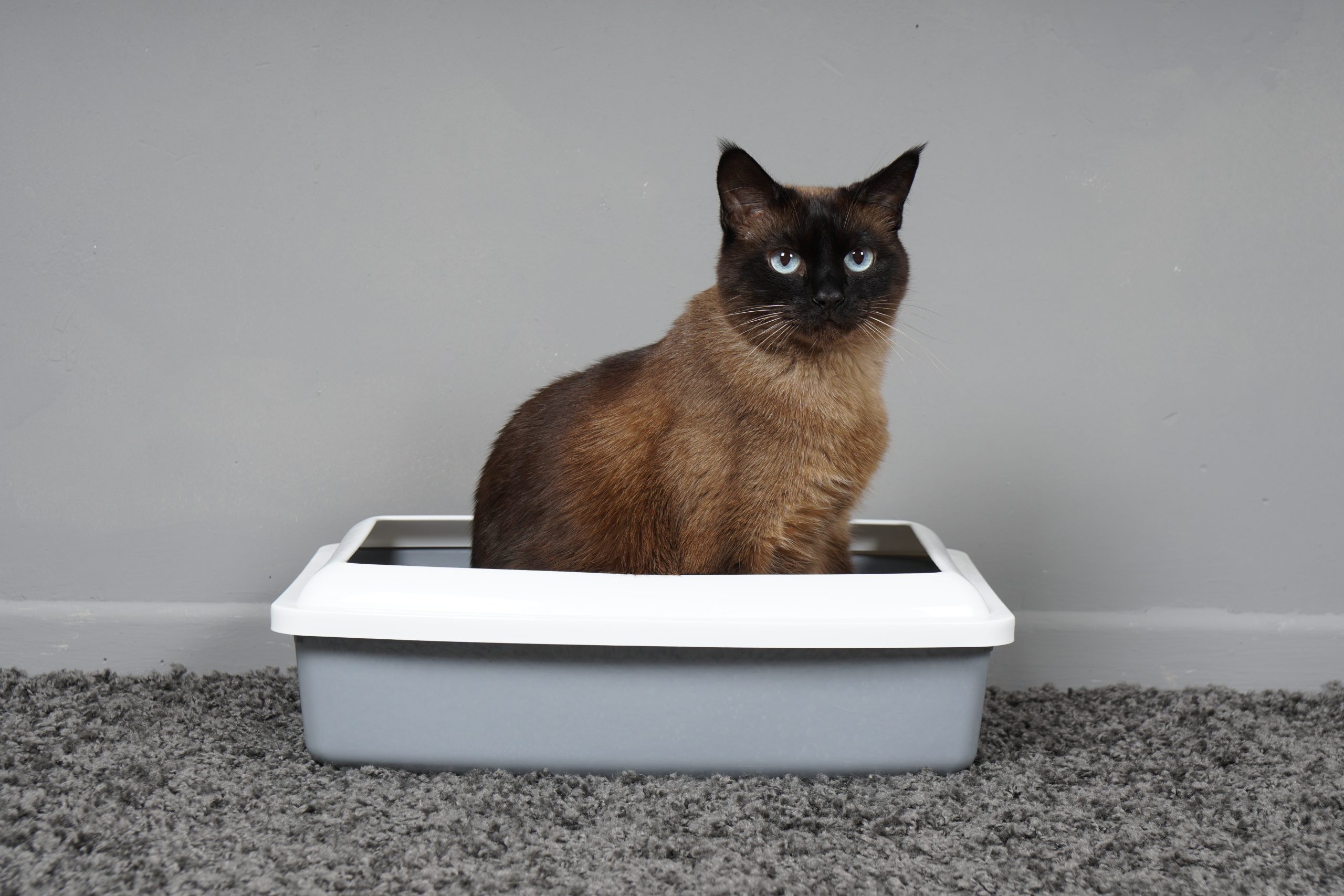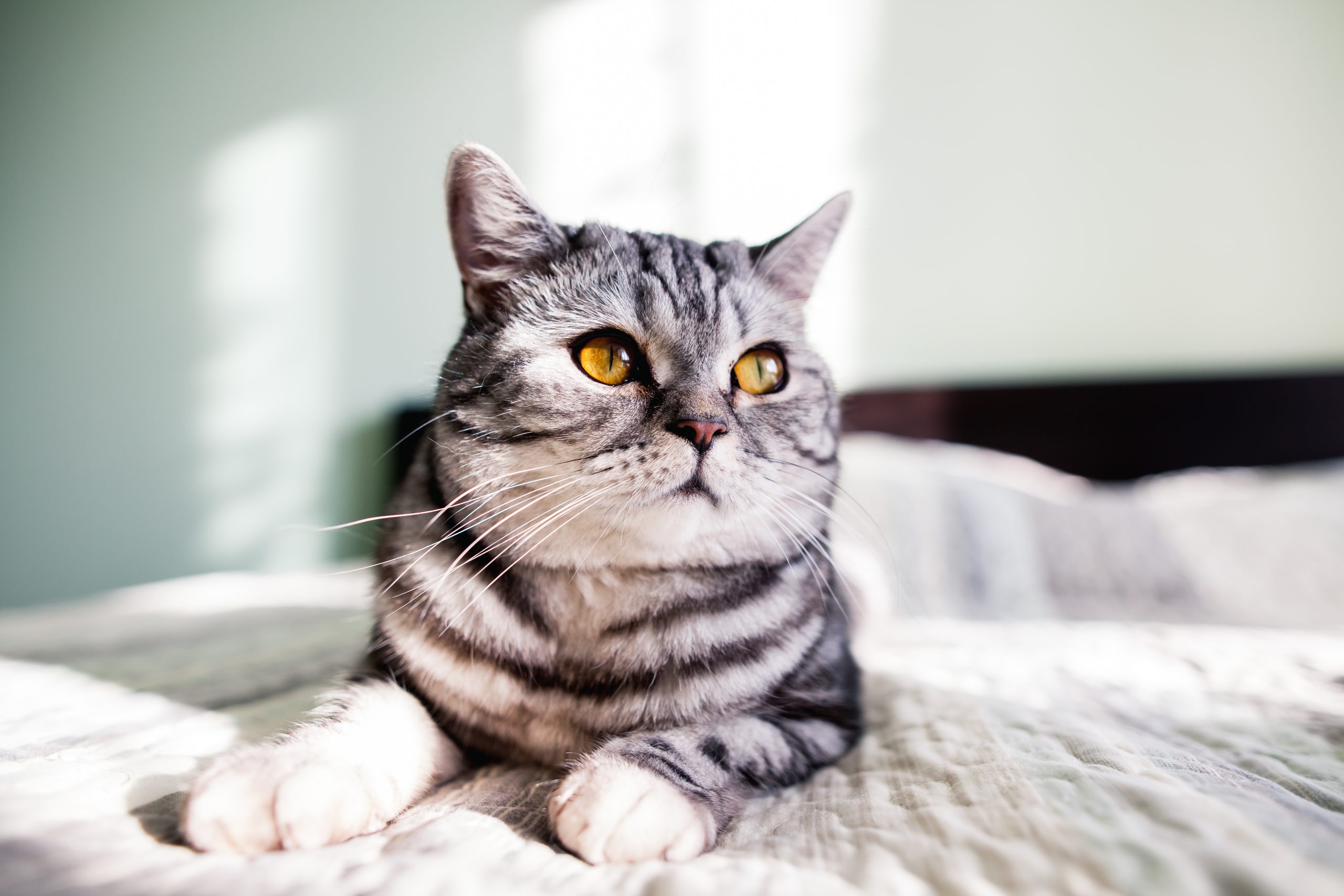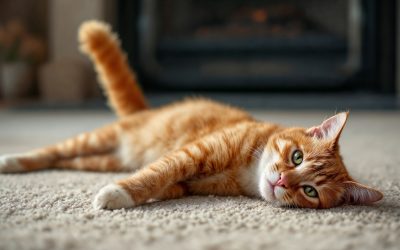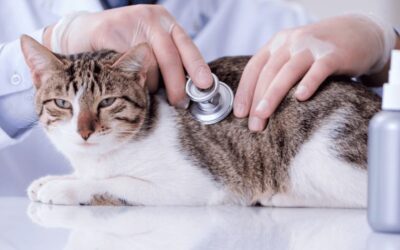Cat Constipation: Signs, Causes & Easy Home Fixes

Updated September 8, 2025
Caring for your cat’s digestive health is an important part of being a responsible pet owner. While constipation might not seem like a big deal at first, it can lead to more serious problems if left unchecked. Knowing what to watch for and how to help can keep your feline friend happy, healthy, and comfortable.
What Exactly Is Cat Constipation?
Simply put, cat constipation occurs when your cat experiences infrequent, difficult, or painful bowel movements. Usually, cats poop once or twice a day, but this can vary depending on their diet and habits. If your cat hasn’t had a bowel movement for more than 48 hours, it could be a sign of constipation.
Constipation occurs when too much water gets absorbed from the waste in your cat’s colon, making the stool hard and dry — and harder to pass. If it’s not treated, constipation can sometimes turn into obstipation, where the colon becomes completely blocked. Over time, this could even lead to a serious condition called megacolon, where the colon gets so stretched out that it stops working correctly. That’s why it’s important to catch constipation early.
Spotting the Signs of Constipation in Your Cat
Being familiar with the signs of constipation means you can step in before things get worse. Here’s what to keep an eye out for:
- Less frequent bathroom visits: If your cat usually goes daily and suddenly skips a day or more, take note.
- Straining or crying in the litter box: Your cat may look like they’re trying hard to go, or they might even vocalize in discomfort.
- Hard, dry stools: Small, hard pellets in the litter box are another clue.
Some symptoms are a bit less obvious. You might notice:
- Lethargy: A constipated cat may be less playful or seem unusually tired.
- Loss of appetite: Digestive troubles can make them less interested in food.
- Vomiting: Sometimes the buildup in the colon makes them nauseous.
By being observant, you can catch constipation early and help your cat avoid more serious health problems.
Why Do Cats Get Constipated?
There are several reasons why your cat might become constipated. Knowing these can help you make changes to prevent it from happening again.
- Dehydration: Cats that don’t drink enough water can end up absorbing extra water from their stools, making them dry and difficult to pass.
- Diet: A diet lacking fiber or consisting mostly of dry food can contribute to constipation.
- Obesity: Carrying extra weight can make it harder for cats to move around and keep their digestive system regular.
Underlying Disease
As veterinarian Hanie Elfenbein, DVM, stated in the article:
“Many diseases, both acute (short-term) and chronic, can lead to cat constipation. These include kidney disease, diabetes, and hyperthyroidism. All cases of straining in the litter box should be evaluated by a veterinarian, because each of these illnesses can become serious or even deadly if left untreated.
Obstruction
A toy or other nonfood item can obstruct the intestines, preventing the passage of poop. This is considered an emergency. If your cat is constipated and shows any symptoms of obstruction, take them to the vet immediately. Symptoms of an obstruction may include:
- Vomiting
- Lethargy
- Refusing to eat
- Swollen belly
- Refusing to lie down
- Fever or low body temperature
The inability to urinate or straining to urinate is also an emergency for your cat; take them to see a vet as quickly as possible to get a proper diagnosis and treatment.”
How Vets Diagnose Constipation
If you suspect your cat is constipated, your observations will be helpful to your vet. They’ll likely start by asking about your cat’s litter box habits, diet, and any recent changes.
A gentle physical exam helps your vet determine if there’s stool buildup in the abdomen. Sometimes, additional tests like X-rays, ultrasounds, or blood work are needed to check for blockages or underlying conditions. Getting an early diagnosis means your cat can start treatment before the conditions worsen.
Simple Ways to Help a Constipated Cat at Home
For mild cases, you may be able to help your cat right at home. Here are some vet-approved ideas:
- Encourage more water intake: Always provide fresh water. You can also add a bit of water to wet food, or use a pet fountain to entice your cat to drink more.
- Add fiber: A little canned pumpkin (plain, not spiced) or switching to a high-fiber cat food can help keep things moving.
- Get them moving: Playtime isn’t just fun — it helps stimulate digestion. Try interactive toys or create new climbing spots.
When Your Cat Needs Veterinary Treatment
Veterinarian Hanie Elfenbein, DVM, also explained that:
“Sometimes home care isn’t enough. If that’s the case, your vet has several options. Treatment for constipated cats depends on the cause and severity. Constipation that is left untreated can lead to megacolon, a form of constipation that is not responsive to medical treatment and can be fatal.
The first step in treatment is to remove the obstructing feces, which sometimes requires administration of fluids or an enema at the clinic. Never give an enema to your cat at home, as human enemas are not safe for cats.
If the constipation is moderate or severe, your cat will need to be sedated for the enema or deobstipation (manual removal of feces).”
How to Prevent Cat Constipation
Prevention really is the best medicine. Here are some practical tips to help keep your cat’s digestive system healthy:
- Feed a balanced diet: Consider incorporating wet food, which naturally contains more moisture. More fiber can also help.
- Keep your cat hydrated: Multiple water bowls or a drinking fountain can encourage them to drink.
- Make sure they stay active: Play sessions and climbing spaces help maintain a healthy weight and good digestion.
- Groom regularly: This reduces the risk of hairballs, especially for long-haired cats.
Can Odie Pet Insurance Provide Coverage If Your Cat Needs Treatment
Depending on the specific policy, pet insurance can cover the diagnosis, treatment, and management of constipation in cats.
Reimbursement
This method is the most common for pet insurance companies. You pay out of pocket for the veterinarian bill, and then the insurance company reimburses you for what’s covered under the insurance plan. The steps look like this.
- You pay the vet bill after your cat’s visit.
- You fill out the pet insurance claim form.
- Submit the claim form and other required documentation to the insurer.
- After the claim is approved, you will be reimbursed for eligible expenses.
Odie’s Illness and Injury pet health insurance plan offers comprehensive coverage for your cat.
What Does Odie Pet Insurance Cover?
Pet insurance covers various veterinary expenses, providing financial protection and peace of mind for pet owners. Here are the details of the coverage options offered by Odie Pet Insurance:
Illness & Injury Plan
The Illness & Injury Plan is an all-inclusive insurance plan designed to cover a wide range of medical needs for your pet. This plan includes comprehensive coverage for various illnesses, injuries, and veterinary services. Some of the covered items include:
- Veterinary exams and consultations
- Diagnostics (e.g., X-rays, lab tests)
- Prescribed medications
- Surgeries and hospitalization
- Rehabilitation, acupuncture, or chiropractic treatments
- Medically necessary supplies
The Wellness Plan
The Wellness Plan is a monthly membership that focuses on preventive care and covers routine veterinary services.
- Provides reimbursements for routine care items such as wellness visits (exams and vaccines), testing and parasite prevention, dental cleanings and at-home dental care, vitamins, supplements, and more.
- Through Odie’s partnership with Petivity, a leader in smart pet products and proactive care, Wellness Plan members can also receive reimbursements for Petivity devices and health kits, as well as eligible Purina food and supplements.
- Total reimbursement up to $700 per year.




